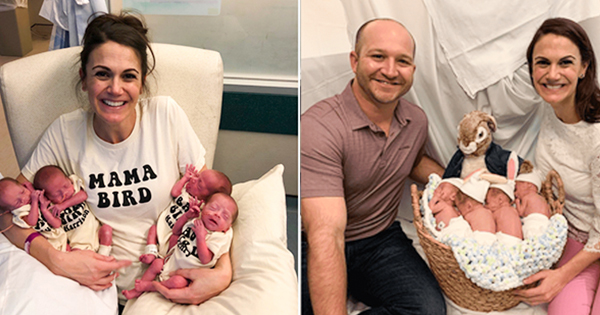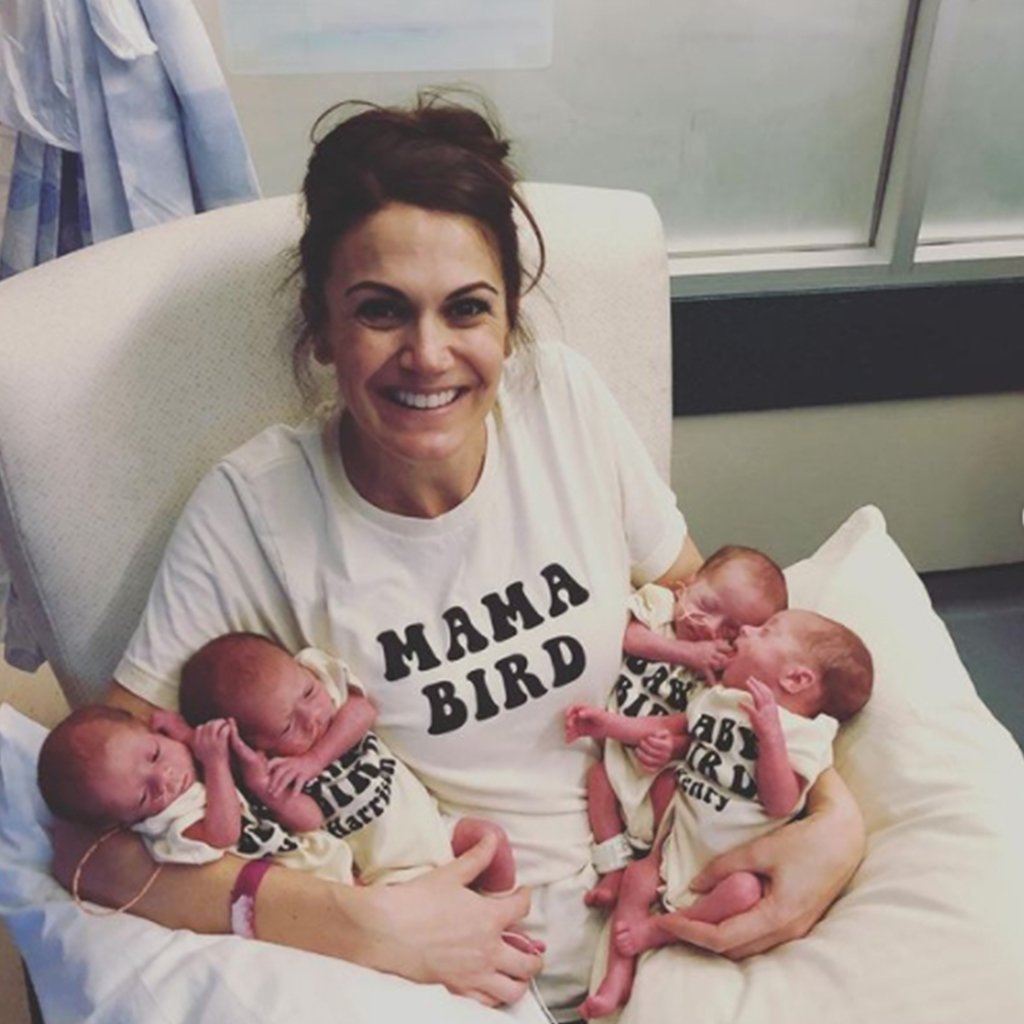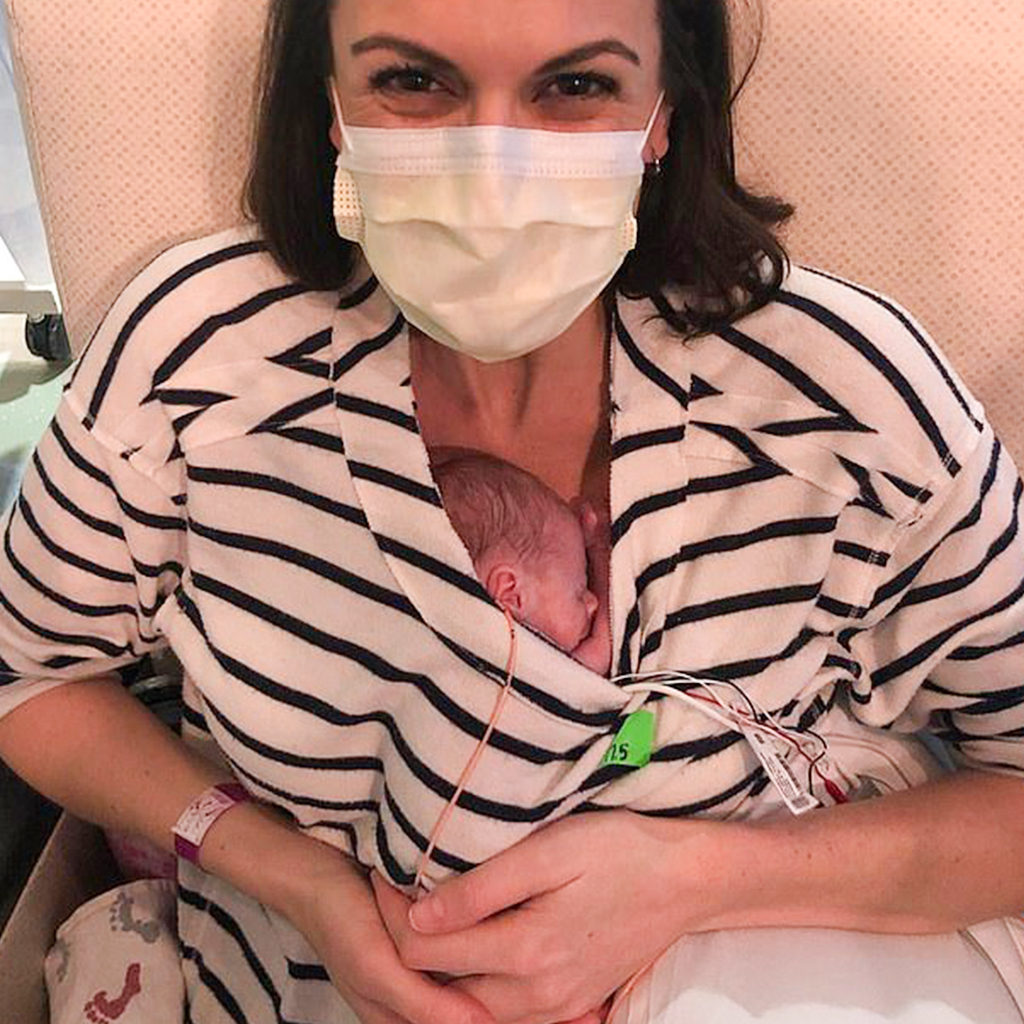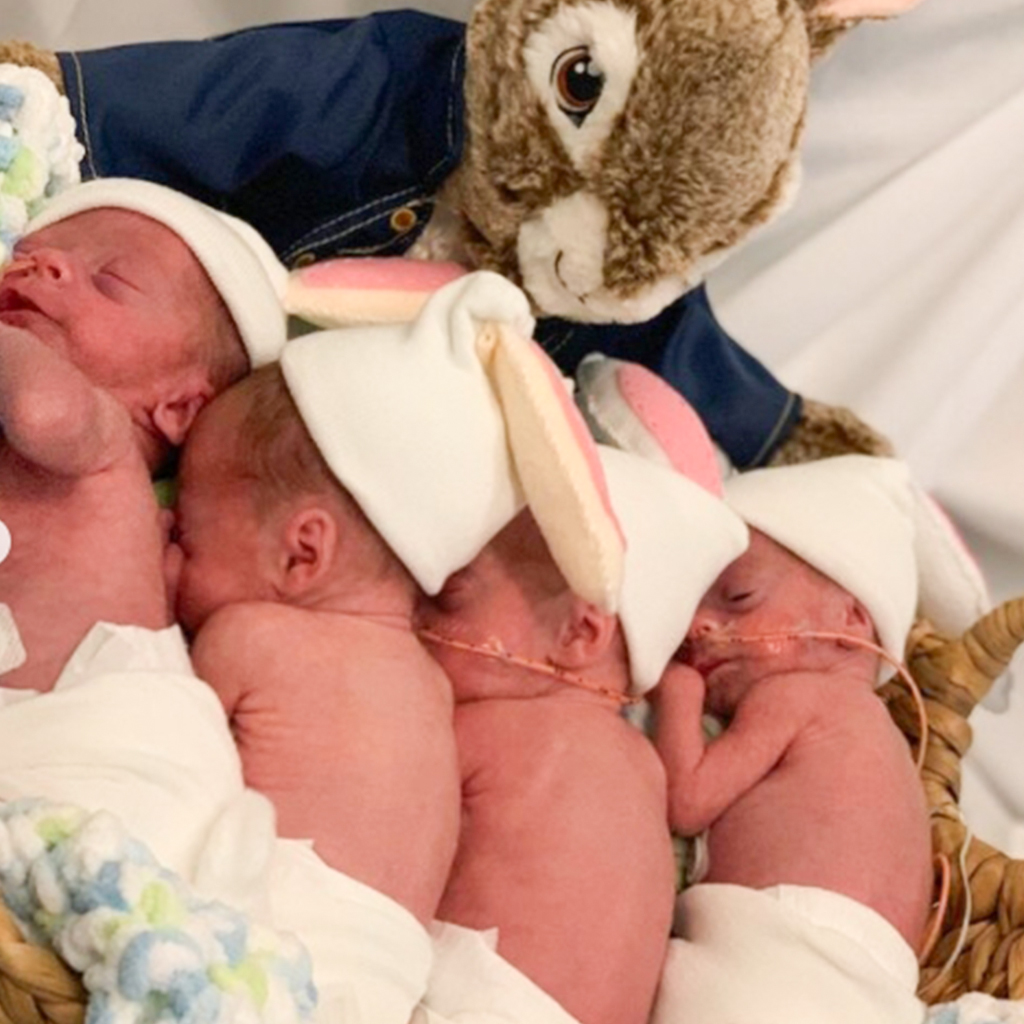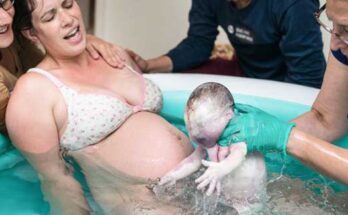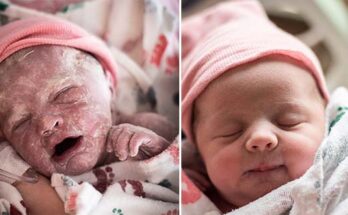Jenny and Chris Marr were thrilled to welcome their first children, but they never expected that it would be during a global pandemic. Much less that they would be welcoming spontaneous quadruplets, which is the rarest of rare occurrences.
Jenny noticed something unusual about the doctor’s stare during her first ultrasound in November. The doctor then informed her that there were three babies. They went to a 𝑚𝑎𝑡𝑒𝑟𝑛𝑎𝑙-𝑓𝑒𝑡𝑎𝑙 𝑚𝑒𝑑𝑖𝑐𝑖𝑛𝑒 𝑒𝑥𝑝𝑒𝑟𝑡 for a follow-up appointment a week later and were taken 𝑎𝑏𝑎𝑐𝑘 when the technician informed them that they are having not three, but four babies!
The Marr couple did not have a history of multiple births in their families, so the news of having spontaneous identical quadruplets came as a shock. “I made the joke that I am not coming back because there are going to be five babies next time,” Chris said. “We were just shocked.”
Not just the first-time parents but even the doctor was in shock to realize that the quadruplets are identical because it is so rare.
“It’s unbelievable. It’ll never happen again in my career. ” Murray, an 𝑂𝐵-𝐺𝑌𝑁 𝑎𝑡 𝑇𝑒𝑥𝑎𝑠 𝐻𝑒𝑎𝑙𝑡ℎ 𝑃𝑟𝑒𝑠𝑏𝑦𝑡𝑒𝑟𝑖𝑎𝑛 𝐻𝑜𝑠𝑝𝑖𝑡𝑎𝑙 𝐷𝑎𝑙𝑙𝑎. “What a miracle it was.”
“The 𝑟𝑖𝑠𝑘 was that one of the babies can develop stronger and basically take away from the other babies,” Chris explained. The doctor said that surgery might be in order which made the couple anxious again. But their doctors reassured them that they would address issues if they arose.
“The babies shared incredibly well. There were no incidents on the sonogram even leading up to that where we were worried that one of them, or two or three of them, would be significantly smaller,” Murray said.
Marr said despite being considered an advanced pregnant woman since she turned 35, but the baby was born at 28 weeks and 4 days – she has had no complications. “It’s a natural process of conception, so whether multiple or single, it’s a much healthier pregnancy,” she said.
But her 𝑐𝑒𝑠𝑎𝑟𝑒𝑎𝑛 𝑠𝑒𝑐𝑡𝑖𝑜𝑛 delivery went well as her husband and mother watched the doctor pull the babies out one by one. “They were all born in three minutes. It’s incredible,” Jenny said. “We called them our baby birds because they really looked like baby birds.” 𝑇ℎ𝑟𝑒𝑒 𝑜𝑓 𝑡ℎ𝑒 𝑏𝑎𝑏𝑖𝑒𝑠 𝑛𝑒𝑒𝑑𝑒𝑑 𝑜𝑥𝑦𝑔𝑒𝑛 𝑎𝑛𝑑 𝑎𝑙𝑙 𝑓𝑜𝑢𝑟 𝑠𝑡𝑎𝑦𝑒𝑑 𝑖𝑛 𝑡ℎ𝑒 𝑛𝑒𝑜𝑛𝑎𝑡𝑎𝑙 𝑖𝑛𝑡𝑒𝑛𝑠𝑖𝑣𝑒 𝑐𝑎𝑟𝑒 𝑢𝑛𝑖𝑡 𝑓𝑜𝑟 𝑎𝑏𝑜𝑢𝑡 10 𝑤𝑒𝑒𝑘𝑠.
Harrison Foy, Henry William, Hudson Perry, and Hardy Smith Marr were born at Texas Health Presbyterian Hospital Dallas on March 15.
The hospital said there have been just 72 documented cases of spontaneous, identical quadruplets.
Jenny’s labor started when she was 28.5 weeks pregnant – just as pandemic struck – and she said she “anticipated the worst”.
But her 𝑐𝑒𝑠𝑎𝑟𝑒𝑎𝑛 𝑠𝑒𝑐𝑡𝑖𝑜𝑛 delivery went well, with Harrison was first out, weighing 2 pounds 6 ounces.
Hardy was next at 2 pounds 10 ounces, then Henry who was 2 pounds 6.7 ounces and Hudson was last at 1 pound 15 ounces.
“They each have little bitty characteristics,” Chris said. “When we sit down and look at them we can figure out who they are but if you just look at them from a distance, they all look the same. Thank God”.
After two months of their sons’ birth, the couple brought their babies home and they say the safety of the infants was their top priority. “Having babies during a global pandemic has been quite the experience. Everyone at Texas Health Presbyterian Dallas made us and our babies top priority for care and safety,” Jenny wrote. “I only hope that one day I can hug each of them and say thank you.”
“We never knew how in love you could really be until you have a love for your child or children all at once in our case,” Jenny wrote. She added, “We just hope that this little story and our boys bring as much joy to everybody as they bring to us.”
